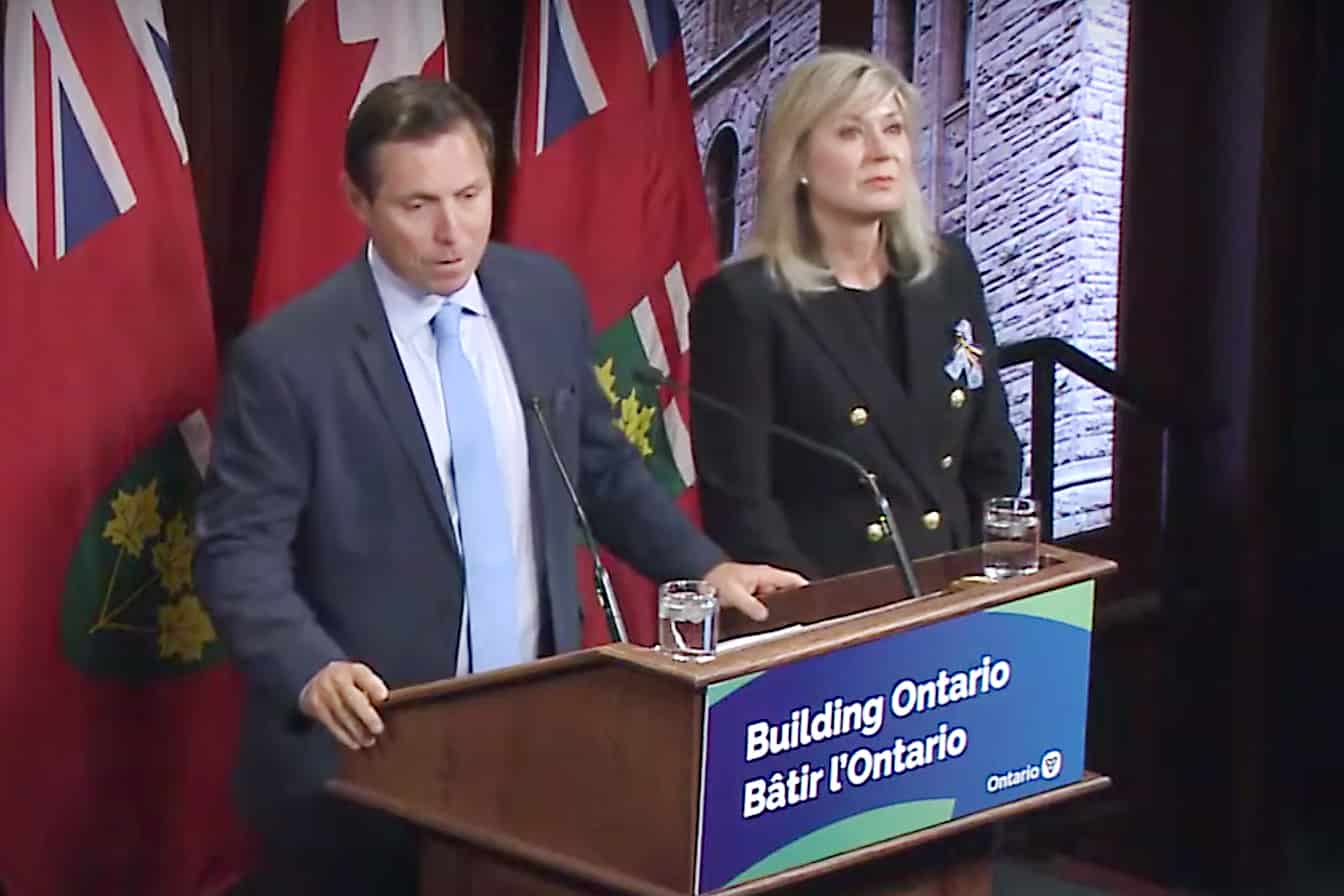Break-up of Mississauga, Brampton and Caledon one step closer with selection of Peel Transition Board
Published July 5, 2023 at 11:31 am

The break-up of Mississauga, Brampton and Caledon is moving ahead now that a team has been chosen to oversee that the split goes as smoothly as possible.
The province made the announcement on Wednesday (July 5) that it has selected the five-person board that will guide the three municipalities through the dissolution of the Region of Peel.
Dubbed the Hazel McCallion Act, the Ontario government fast-tracked legislation in May to begin splitting the region and leave Mississauga, Brampton and Caledon as independent municipalities.
Steve Clark, Minister of Municipal Affairs and Housing, says the board will work to make sure local services aren’t impacted or interrupted during the transition period which is expected to last until January 2025.
The province says its five-person board brings a wide range of experience from different sectors including infrastructure development, policing, municipal planning, and law.
Here are the members of the Peel Transition Board:
John Livey
Having previously served as a deputy city manager for Toronto, CAO of Markham, and planning commissioner for the Region of York, Livey has over 40 years of municipal and provincial experience. Livey, who was also the executive director for the Greater Toronto Task Force and director of policy development for the Metropolitan Toronto Planning Department, will serve as chair of the Peel Transition Board.
Tracey Cook
Cook has been with the City of Toronto since 2012, holding various positions including interim city manager, deputy city manager and executive director of the Municipal Licensing & Standards division. Prior to her work at the city, Cook spent 18 years with the Toronto Police Service, retiring with the rank of Detective in the TPS Fraud Squad.
Sean Morley
Morley is a partner at the Fasken Martineau LLP and a member of the law firm’s Global Infrastructure and Projects practice group, focussing on public-private partnership infrastructure projects. Morley is also a former director of the Toronto Port Authority and serves as the Chair of the Pollution Probe Foundation.
Eric Jolliffe
With more than 40 years of experience in policing at the regional and municipal levels, Jolliffe began his career in 1979 as an officer with the Edmonton Police Service. He went on to spend 20 years with York Regional Police where he served as Deputy Chief and Chief of Police.
Peter Weltman
Weltman held the post of Ontario’s Financial Accountability Officer from 2018 to 2023 and previously served as a senior director of the Parliamentary Budget Officer in Ottawa. Weltman has also held positions federally for Industry Canada, Agriculture and Agri-Food Canada, Service Canada and the Treasury Board Secretariat, and has private sector experience in both financial services and food retail.
Appointing the transition board is the latest step on the road toward dissolution, which so far has been marked with mudslinging between the mayors of Mississauga and Brampton and their respective city councils.
Mississauga Mayor Bonnie Crombie pushed for the split and welcomed the decision in May after taking up the cause from her predecessor McCallion, but the move has also led to a war of words between Crombie and Brampton Mayor Patrick Brown over hypothetical costs.
Brown has repeatedly said that Brampton could be on the hook for some $4 billion in the split – claims which have been called “nonsensical” by members of Mississauga City Council. Brown stood by those claims in a recent interview with Insauag.com but added that he has confidence that the transition board will ensure a fair deal for Brampton.
Caledon Mayor Annette Groves has stayed out of the spitting match but has said that the split from the region was never something the town wanted.
Mississauga, Brampton and Caledon have also been granted so-called “strong mayor” powers by the province along with dozens of other municipalities that have signed onto the Municipal Housing Pledge under Ontario’s Bill 23.
Known as the More Homes Built Faster Act, the controversial bill sets housing construction goals for municipalities across Ontario to build 1.5 million new homes within 10 years, but a report from the Region of Peel showed the bill could actually reduce the amount of affordable housing stock set to be built over the next decade.
INsauga's Editorial Standards and Policies


